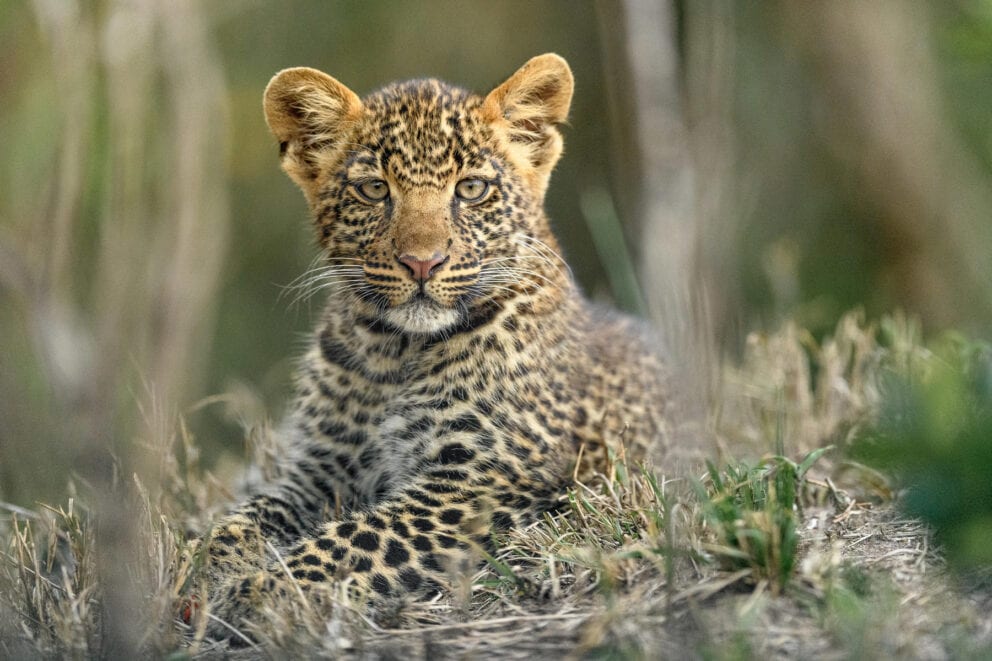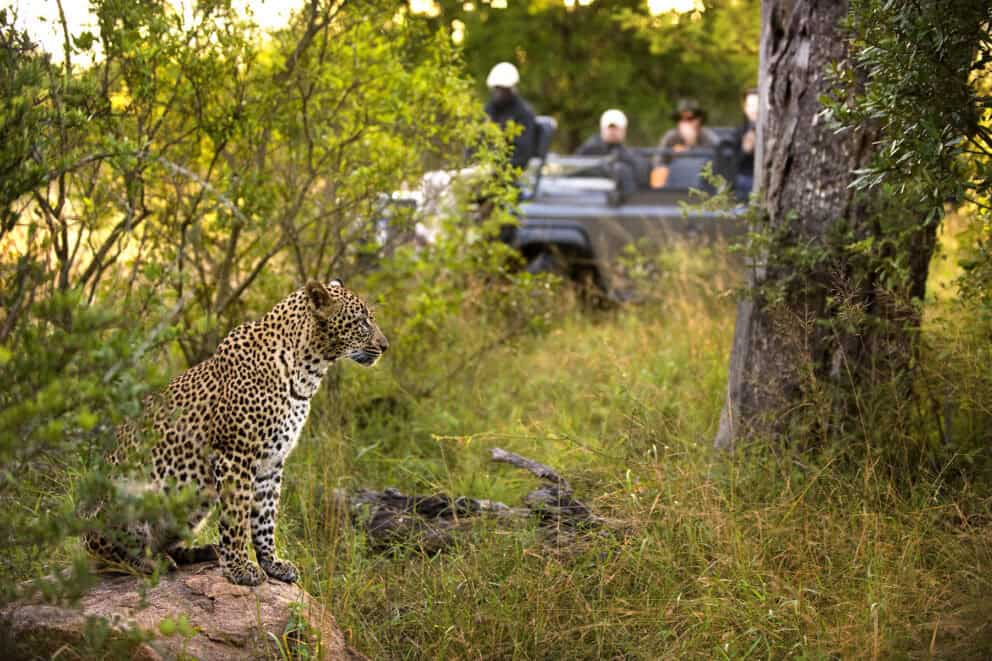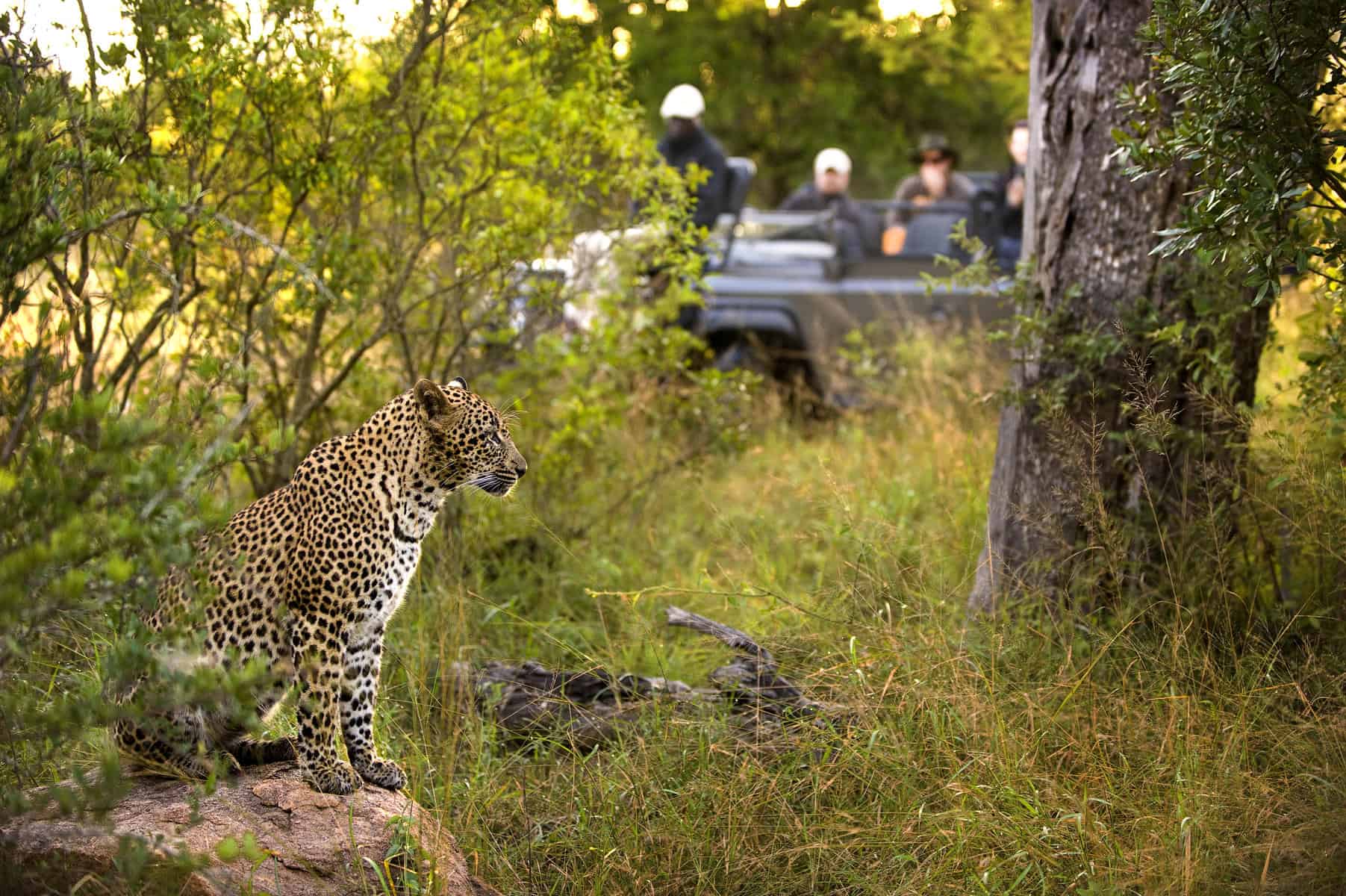Picture yourself on a night safari, the African wilderness stretching before you, the shadows dancing under the starlit sky. Suddenly, you spot the elusive African leopard, its nocturnal behavior in full swing as it embarks on a hunt.

You hold your breath as you watch the sleek predator move through the tall grass, its spots blending perfectly with the surroundings. This is a glimpse into the luxury wildlife experiences you can expect on night safaris. Keep reading to learn more about the African leopard’s nocturnal behavior and unique adaptations for night hunting that come alive in the dark.
Stealth
The African leopard relies on stealth and surprise when night hunting. Their spotted coats provide the perfect camouflage against the dappled light of the nighttime landscape. One of the leopard’s hunting techniques is to use the cover of darkness to creep up on unsuspecting prey. With padded paws that distribute their weight to mask sound, leopards can launch their ambush before their target detects a threat.
Amazing Eyesight
But how do leopards locate prey in the first place? Their exceptional vision gives them a critical advantage. With eyes that are six times more light-sensitive than human eyes, leopards can detect movements up to 200 feet away, even in light as dim as moonlight.
Acute Hearing
With ears that can rotate 180 degrees, leopards can pinpoint the faintest rustle in the undergrowth. They can track prey movements by swiveling their ears like radar dishes. Their hearing is so keen that they can detect subsurface vibrations through the ground.
Sense of Smell
A leopard’s sense of smell also guides its nocturnal hunts. With scent glands concentrated in the roof of their mouth, leopards “taste-smell” the air to detect prey odor trails.

By determining the age and potency of a scent, leopards can estimate how recently potential prey passed by. It’s a leopard-hunting technique that helps them single out the most vulnerable target.
Powerful Jaws and Amazing Agility
Once a leopard has stalked its prey, it pounces with incredible speed and agility. Its powerful jaws quickly bite the neck, suffocating the prey in seconds. Leopards are also known for their fantastic climbing abilities, using trees as lookout posts or as a means to escape larger predators.
Adaptability and Intelligence
Leopards are adaptable animals. They’re known to hunt a wide variety of prey, ranging from insects to large antelopes. They also have incredible intelligence, using their ability to adapt and problem-solve to survive in changing environments.
View African Leopard’s Nocturnal Behavior
So next time you’re enjoying one of our night safaris, keep your eyes peeled for the elusive leopard and appreciate their incredible skills to thrive under the cover of darkness.
When it comes to luxury safari experiences, enjoying unfettered access to this after-hours world is an exceptional treat. While most safari-goers are tucked in bed, an elite few experience Africa’s mesmerizing nocturnal theater. With the guidance of expert African safari guides, spotting a leopard on the prowl becomes an adrenaline-charged possibility.
Ask about our night safari options when planning an unforgettable African adventure at Discover Africa. Watching African leopard’s nocturnal behavior via the safety of a safari tour is an experience to cherish for a lifetime!









 Blog List
Blog List













Written by Johnieka Holtzhausen
• Travel Writer
Verified by Adelle Bell
• Africa Safari Expert
Part of the Leopard Safaris Collection